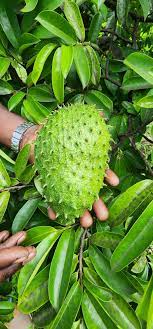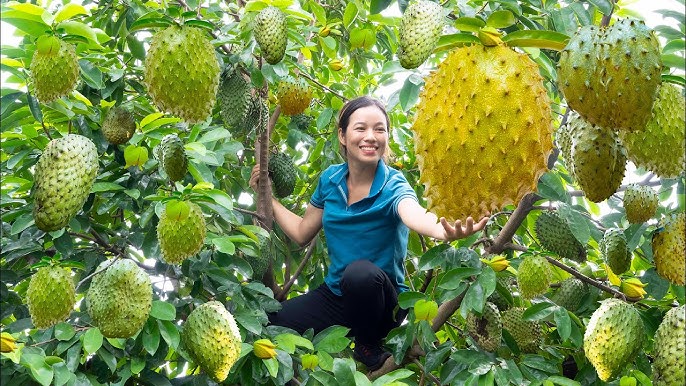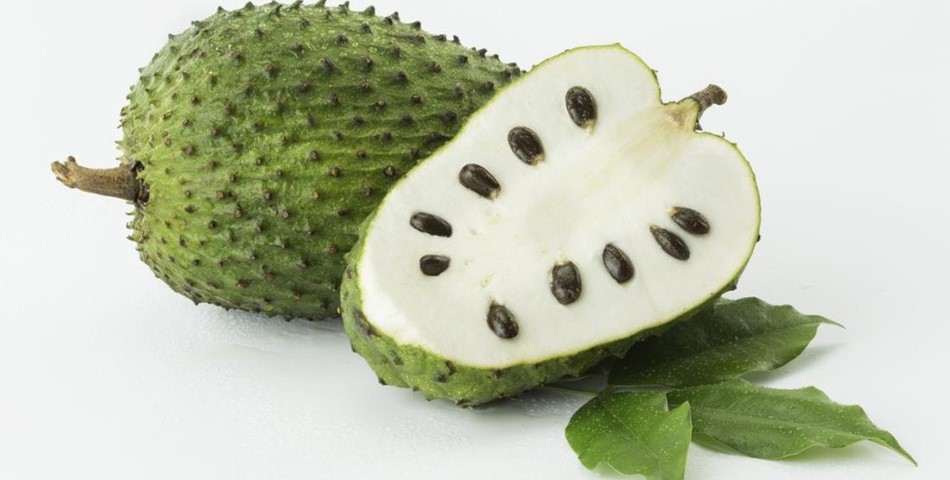Tucked away in the Annonaceae family, alongside cherimoya and sugar apple, lies the enchanting custard apple, also known as soursop (Annona muricata). Native to the West Indies and Mexico, this tropical treasure has been cultivated in Africa since the 17th century, where it thrives as a dooryard fruit tree in South Africa.
At first glance, the custard apple’s dark green, oblong-shaped exterior, adorned with shiny spines, may seem intimidating. However, beneath its prickly skin lies a creamy, sweet, and nutritious pulp, perfect for adding a unique twist to desserts and drinks. With its flavor often likened to a combination of pineapple and strawberry, it’s no wonder this fruit is a favorite among fruit enthusiasts.
Join our WhatsApp ChannelBeyond its culinary appeal, the custard apple boasts an impressive array of benefits. For those with dairy allergies or intolerances, this fruit offers a delicious and nutritious alternative, with a similar creamy texture and nutritional profile.

The leaves of the custard apple tree have been used for centuries in traditional medicine, particularly in subtropical countries like India, Malaysia, and Vietnam. They’re employed to treat a range of ailments, from fever and dysentery to cardiac issues and worm infections.
READ ALSO: Health Benefits Of African Star Apple
Recent studies have shed light on the custard apple’s impressive medicinal properties, including antioxidant, antiviral, antimicrobial, antidiabetic, anti-obesity, antidiarrheal, and antitumor activities. These properties make it an exciting prospect for combating chronic diseases, such as cancer and cardiovascular conditions.

While some parts of the fruit are inedible, the custard apple’s unique combination of culinary and medicinal benefits makes it an excellent addition to any fruit tree collection. Whether you’re a seasoned gardener or just starting out, cultivating a custard apple tree can be a rewarding experience, providing you with a bountiful harvest of delicious and nutritious fruit, as well as a natural source of medicine.
Dr Mbamalu, a Jefferson Journalism Fellow, Member of the Nigerian Guild of Editors (NGE) and Media/Communications Consultant, is the Publisher of Prime Business Africa (PBA).
Dr. Marcel Mbamalu is a distinguished communication scholar, journalist, and entrepreneur with three decades of experience in the media industry. He holds a Ph.D. in Mass Communication from the University of Nigeria, Nsukka, and serves as the publisher of Prime Business Africa, a renowned multimedia news platform catering to Nigeria and Africa's socio-economic needs.
Dr. Mbamalu's journalism career spans over two decades, during which he honed his skills at The Guardian Newspaper, rising to the position of senior editor. Notably, between 2018 and 2023, he collaborated with the World Health Organization (WHO) in Northeast Nigeria, training senior journalists on conflict reporting and health journalism.
Dr. Mbamalu's expertise has earned him international recognition. He was the sole African representative at the 2023 Jefferson Fellowship program, participating in a study tour of the United States and Asia (Japan and Hong Kong) on inclusion, income gaps, and migration issues.
In 2020, he was part of a global media team that covered the United States presidential election.
Dr. Mbamalu has attended prestigious media trainings, including the Bloomberg Financial Journalism Training and the Reuters/AfDB Training on "Effective Coverage of Infrastructural Development in Africa."
As a columnist for The Punch Newspaper, with insightful articles published in other prominent Nigerian dailies, including ThisDay, Leadership, The Sun, and The Guardian, Dr. Mbamalu regularly provides in-depth analysis on socio-political and economic issues.













